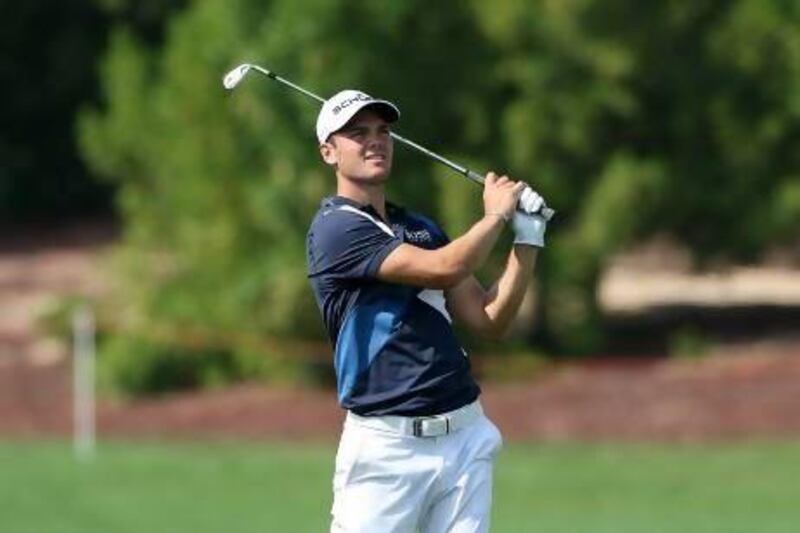The missive came from the fingertips of a guy they call the "Belgian Bomber", and in some fashion, it had the impact of a titanium driver on today's nuclear-powered golf balls.
Nicolas Colsaerts, a member of the European Ryder Cup team who enjoyed a breakout season, took to his Twitter account upon learning that he had cemented his playing privileges for 2013 on the US PGA Tour, a circuit that continues to have at least as much clout as the ball-vaporising Belgian, one of the longest players on the planet off the tee.
Colsaerts, a longtime member of the European Tour, doubtless caused some cringing at tour headquarters outside London when he tweeted, "It's official now … PGA Tour member!!" Exclamation points aside, the real punchline was delivered in the so-called hashtag follow-up, which effectively read, "rest of 2012 who cares what happens."
Plenty of folks are looking farther down the road than that with concern. Colsaerts neglected to add a question mark at the end of his second Twitter comment, but others have not.
It is a European exodus of sorts. Colsaerts is one of three members of the winning Ryder team to sign up for the American tour in 2013, joining Germany's Martin Kaymer, a former world No 1, and Sweden's Peter Hanson.
All three are ranked in the top 40 of the final world ranking of 2012, issued this week. In fact, the top 28 players in the world have signed on as US tour members for next season, including the top 13 non-Americans. For the US circuit, which has struggled less with the retention and addition of sponsors, the infusion of talent represents an embarrassment of riches – the latter word was chosen with specific intent.
While most of the top international guns – including world Nos 1-2 Rory McIlroy and Luke Donald – will play on both tours, it stands to reason that the European events will see fewer big names through the middle of the season, when Uncle Sam's dollars are too attractive to resist.
By way of underscoring the migratory trend, England's Ryder Cup hero Ian Poulter last weekend flew to London to attend a BBC awards show, then flew straight back to his US base in Florida, where he lives in the same gated community as Graeme McDowell, the world No 4 Justin Rose and Hanson.
Moreover, McIlroy and England's Lee Westwood, who each will play on both tours next year, are setting up shop in Florida, with McIlroy buying a US$10 million (Dh36.7m) pad in the Palm Beach area. Westwood, a former No 1, is moving his family to the States as well, which represents a clear signal of habitational and professional intent.
"We are concerned, but not panicking," the European Tour commissioner George O'Grady said at the season-ending Dubai stop last month. "We have to improve our game back here in heartland Europe, make our tournaments better, and that also means richer. We don't seem to have any problem on the structure in the game in Europe developing the talent. But you want to see more of your talent as much as you can."
Development is one thing. Retention is another.
Golf is a numbers game, and the digits to the left of the decimal point are nearly as important as the score on the card. The global financial crunch cost the European Tour five events in Spain that are not on the 2013 schedule. England will host only one event.
The tour continues to add tournaments in South Africa and Asia, but those events involve major logistics hurdles and usually have smaller purses than their American counterparts. Cash and convenience makes for easy decisions for players good enough to lean toward the west.
"It's a tough situation for the [European] tour to be in and I really hope there's a plan to help the tour get more sponsors," Poulter told reporters in Dubai.
Not much else can be done, really. The American tour requires a minimum of 15 tournament appearances from members and Europe mandates 13, but the majors and several other big stops count toward the totals on both tours. McIlroy played in six regular European events this year and Donald played in five. Each played twice in Great Britain or Ireland.
"Obviously, Europe in general as a continent is struggling," Poulter said.
Said O'Grady, a sensible man who is rarely accused of factual embroidery: "We are looking at various amalgamations and we are concentrating on that while, at the top end, we are really going where the economy dictates we have to go."
Some of his players have already gone.
Follow us
[ @SprtNationalUAE ]





